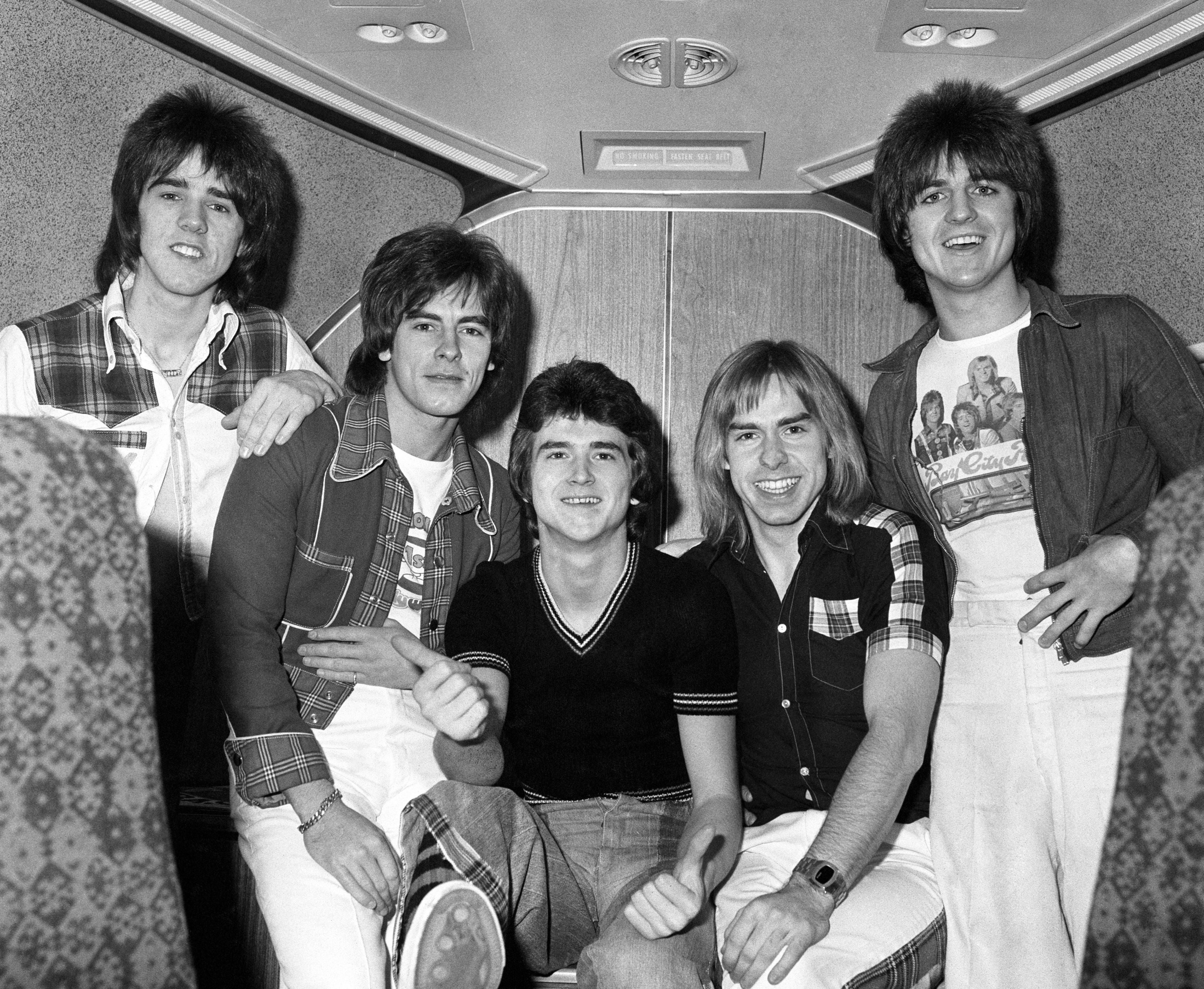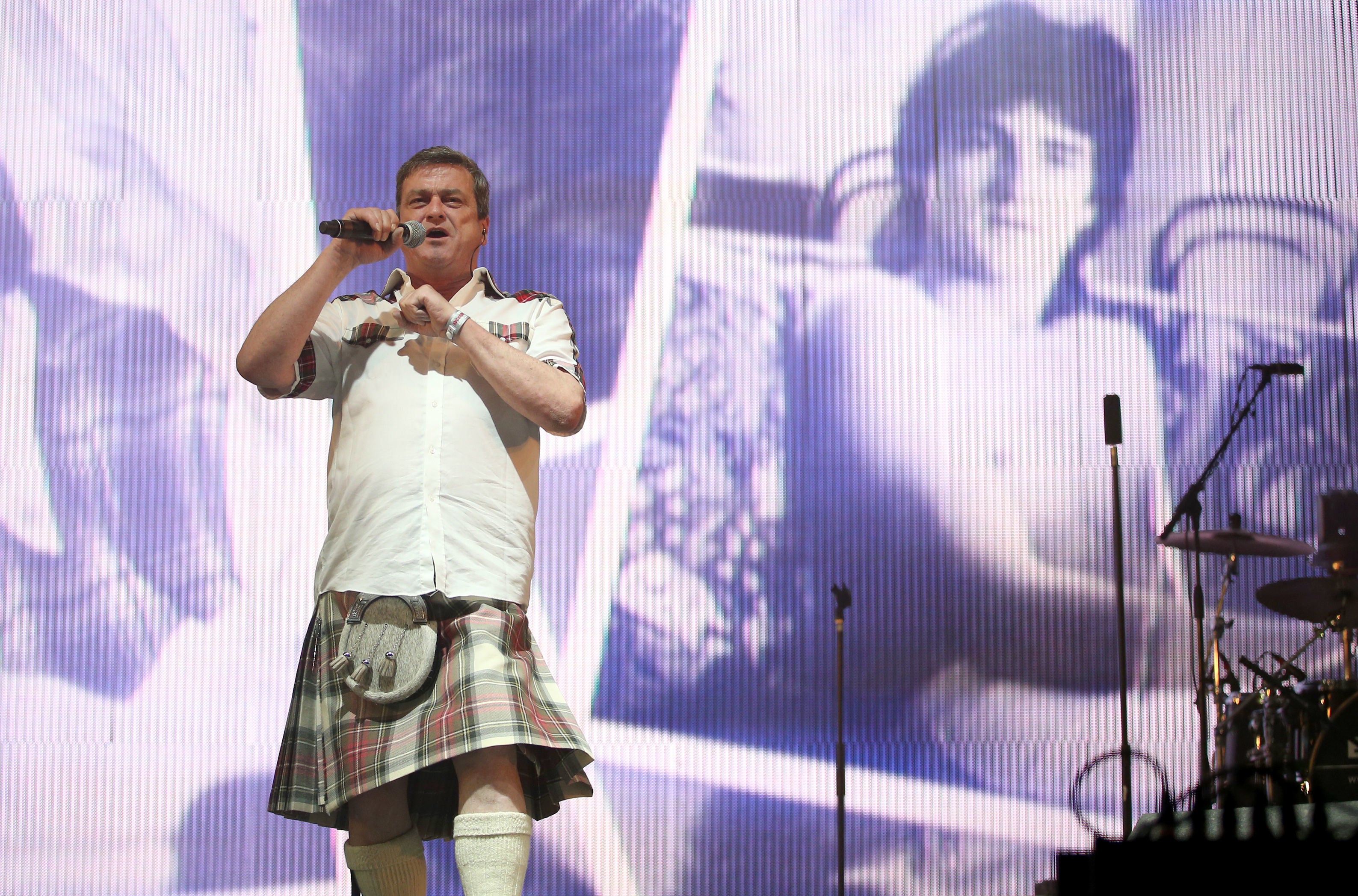Les McKeown: Colourful frontman of the Bay City Rollers
Once briefly bigger than The Beatles, the Seventies pop star and his band rode the wave of Rollermania around the world

For five years back in the 1970s, Les McKeown, who has died aged 65, was the lead singer of Scottish boy band, the Bay City Rollers. Cleverly customising half mast trousers and platform shoes alongside Scotland’s national plaid, the group’s catchy songs and wholesome boy-next-door image defied everyone’s expectations as Rollermania swept the five baby-faced Edinburgh teenagers onto the world stage.
However, while briefly bigger than The Beatles and for a time outselling David Bowie, a series of dodgy deals by the band’s often controversial manager, Tam Paton, saw McKeown, among many others, cruelly lose out on his share of the group’s supernova success.
Born in Broomhouse, Edinburgh, the youngest of four sons, his father a Northern Irish tailor, his mother a seamstress, Leslie Richard McKeown was educated at Forrester High School. Leaving education aged 15, he then applied unsuccessfully to join the merchant navy.
While working initially in a paper mill, he formed an increasingly popular five-piece rock band called Threshold. Performing cover versions of top 20 hits throughout the Lothian area, he was soon relishing the lifestyle, enthusiastically throwing himself into all manner of hedonistic excesses. He was then approached by Paton to join the Rollers, which he did in November 1973.
Formed in 1964 as the Ambassadors by the Longmuir brothers, Derek and Alan, they later became known as The Saxons before gradually evolving into the Rollers. Their ultimate name was chosen by throwing darts at a map of America, one arrow landing on Bay City, Michigan. When McKeown and the Longmuir brothers were joined by Eric Faulkner and Stuart Wood, it was this particular quintet who suddenly hit pay dirt. Modelled on the Osmonds, Paton promoted them as clean-living types who did not drink or take drugs and did not believe in sex before marriage. Keen to exploit their earning potential, Paton never hesitated to supply the drugs so necessary to keep them working.
Engaging veteran hitmakers Bill Martin and Phil Coulter furnished the group with their 1974 hit, “Remember Me (Sha La La)”. Within six months that song had been followed into the top ten by “Shang-A-Lang”, “Summerlove Sensation” and “All of Me Loves All of You”.
Twelve months later, alongside their own television series, they also enjoyed consecutive hit records, beginning with a revival of the Four Seasons song, “Bye Bye Baby”, and then the ballad, “Give A Little Love”. Across the Atlantic, following a TV appearance on Saturday Night Showcase, their recording of “Saturday Night” swiftly rose to the top of the American charts. Big also in Japan, Rollermania was now in full flow.

In 1975, however, the group’s wholesome image gradually began to unravel. Fined £1,100 for attacking a paparazzi while in Oxford, a few months later, when briefly home in Edinburgh, McKeown knocked down and killed a 76-year-old neighbour, Euphemia Clunie. Initially charged with causing death by dangerous driving, he was subsequently convicted of the lesser charge of driving recklessly, fined £150 and banned for a year. He subsequently made a further court appearance after firing an air rifle at a teenage fan, which he was later cleared for. In addition, accusations persisted that members of the group did not contribute to their own recordings.
Further hits included “Love Me Like I Love You” and a successful cover of Dusty Springfield’s “I Only Want To Be With You”. Here, 1977’s “You Made Me Believe in Magic” became their final top 10 entry. While in decline on the domestic front they remained hugely popular in America, Paton forcing them to permanently relocate to Los Angeles.
While there, an increasingly unhappy McKeown spent most of his time in a drug-fuelled haze regularly taking cocaine with the Who’s Keith Moon and Led Zeppelin’s John Bonham. Both friends would be dead within three years. By 1978, as record sales dipped further and internal wrangles increased, McKeown decided it was time to quit the Rollers.
Having been such a huge worldwide success selling 120 million records, plus merchandising and tours, McKeown naturally assumed that he would be very rich indeed. Instead, he found himself with a £24,000 American Express bill to pay. In addition, the mortgage on the house he had purchased for his mother and father had not been paid. It had to be sold, his parents finding themselves suddenly out on the streets. McKeown himself ended up in a Ladbroke Grove bedsit.
None of the group received royalties for 25 years. Each should have had a £15m fortune. As he revealed in a 2004 Channel Four documentary, the culprit was undoubtedly Paton. When the band’s legal battles were eventually settled, McKeown received £70,000.

Forming Les McKeown’s Ego Trip, his first post Rollers solo album was titled All Washed Up. It flopped badly as did a follow-up single, “Shall I Do It”. After emerging from a seemingly endless series of legal disputes with his former band members, McKeown was allowed to create a new group, Les McKeown’s Legendary Bay City Rollers. He would augment his income by driving a van.
Caught in possession of cocaine in 2004, four years later, amid a last-ditch attempt to overcome his alcoholism, he became an inpatient at Passages in Malibu, California, also appearing on the hit US Reality show, Rehab. Six years ago the remaining Rollers reunited for a brief series of popular sell-out concerts.
McKeown is survived by wife Peko Keiko, who he married in 1983, and their son.
Les McKeown, musician, born 12 November 1955, died 20 April 2021



